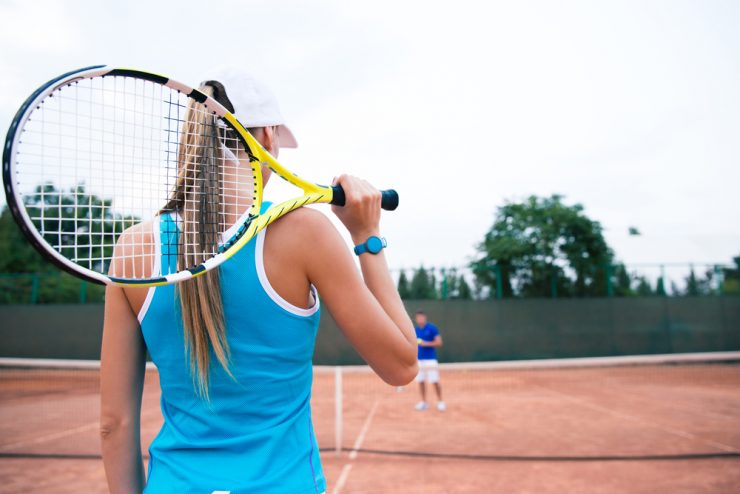June is the perfect time to get out your racket and hit some balls across the net.
Editor Jane Garton looks at the health benefits of tennis and a herb that can help to keep you flexible on the court.
Wimbledon kicks off on June 26th and what better time to get on the court and play a few sets. As well as being fun and a great way to exercise, tennis has many health benefits. For starters it is a terrific way to improve all-round fitness and fend off obesity, diabetes and heart disease. Singles is also one of the best ways to increase aerobic capacity if you’re fit, while doubles is ideal for beginners as it’s easier on the heart and lungs.
Other benefits include lowering your resting heart rate (a sign of fitness), reducing body fat, lowering ‘bad’ LDL cholesterol and raising ‘good’ HDL cholesterol. It also lowers blood pressure and improves the body’s ability to handle glucose. All that running about also works the bones making tennis one of the best sports for a healthy skeleton.
But what if your joints start to play up with all that exertion on the court? The good news is the herbal remedy devil’s claw may help to ease the strain.
HERBAL HELPER
Long used by bushmen living in the Kalahari Sands of Namibia for a variety of ills ranging from digestive complaints to back and joint problems, research now shows that devil’s claw contains substances that have analgesic and anti-inflammatory properties[1]. And the good news is that there are no side-effects. The anti-inflammatory action doesn’t block any of the body’s natural processes, as some conventional medications do, so there is no danger of harming the stomach lining, the kidneys, or of causing any circulation or vascular problems.
HOW DOES IT WORK?
No one knows for sure but the anti- inflammatory properties of the active compounds called harpagosides, and the plants sterols found in its roots, are thought to be responsible.
For more information on Devil’s claw visit the Herb Fact File.
[1] Chung HJ, Kyung Kim W, Joo Park H, Cho L, Kim MR, Kim MJ, Shin JS, Ho Lee J, Ha IH, Kook Lee S. Anti-osteoporotic activity of harpagide by regulation of bone formation in osteoblast cell culture and ovariectomy-induced bone loss mouse models. J Ethnopharmacol. 2016 Feb 17;179:66-75. doi: 10.1016/j.jep.2015.12.025.























